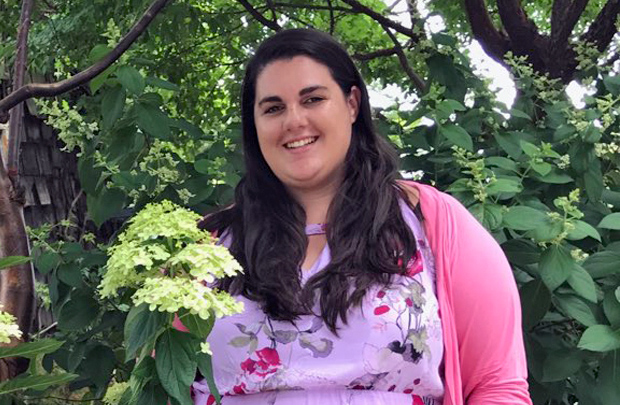
Janelle Ott is a finalization case manager in Pennsylvania. She spends most of her time matching children with families.
One of Janelle’s colleagues suggested that we feature her as an Outstanding Caseworker, writing:
“Words such as dedication, outstanding, and tireless are those that can be used to describe Janelle Ott. Her commitment to finding permanent homes for children of all ages has always shined through. Janelle will not shy away from a challenge and will use any and all connections that she can make to achieve permanency for Pennsylvania’s waiting children.”
You became a social worker after changing majors mid-stream in college. What happened?
I was pursuing a degree as a middle school math educator. At some point I realized that there are reasons far beyond the classroom that explain why kids are not meeting educational goals. I had a desire to learn how their life at home was impacting the reasons behind their behaviors in school. I learned that some of the influences impacting the child’s needs were greater than a school setting could offer.
One of my professors suggested that I talk with someone in the school of social work. After that conversation, I changed my major and crammed four years of social work studies into my final two! I graduated with my bachelor’s in social work six years ago and have worked in foster care and adoption ever since.
Your job is to help children find permanency. Are the most rewarding moments seeing that happen?
Of course it’s wonderful to be there for an adoption hearing or seeing a family be reunified. Finally, the family can become a family, with no workers around!
But the most gratifying moments to me are when I’ve been working with a kid for a while and we get to the point where they feel comfortable opening up and using their voice to advocate for themselves. There are so many laws and policies that can stifle kids. If they feel like they’ve lost their voice, my goal is to give it back to them.
How do you get kids to open up?
Figuring out a way to do that looks different for every kid. That’s part of what keeps me doing this work.
But to start, I have an honest conversation with them about what’s going on in their life at that moment. They are in a tough spot— there are a lot of unknowns and a lot that is out of their control. When I acknowledge and empathize with the hardships of their situation, then we can start building the rapport with one another.
You work with a lot of teens. What are the biggest challenges?
It’s hard to find families for teens, in part, I think, because people have negative stereotypes about them.
The thing is that teens in foster care have been dealt some of the worst cards of anyone, and they are working through the traumas that brought them into care. It’s true that those traumas can create negative behaviors. But the behaviors do not define the child.
My goal in working with any teen is to get them to a point where they can see the positives in themselves and have better self-esteem. I do that by listening to them and praising even their smallest achievement. I try to help them see the strengths that lie inside them. Once I’ve done that, then I can share those positive qualities with prospective families.
What are some resources you recommend to parents you work with?
I really like Karyn Purvis’s Trust-Based Relational Intervention model (TBRI) and the “Empowered to Connect” training that draws from it. They offer good insights into how to deal with behaviors in a trauma-focused way and how to address thoughts and feelings that lead up to behaviors.
I also suggest that parents I work with check out the Honestly Adoption podcast that Mike and Kristin Barry produce through their website, Confessions of an Adoptive Parent. It paints a realistic portrait of what it’s like to be a foster and adoptive parent while also providing help tips and tricks to navigate through the process.
Final thoughts?
Being recommended by my colleague as Outstanding Caseworker really took me by surprise! I’m not one for public congratulatory. I’m grateful for the recognition. This is a hard job, and I couldn’t do it without the support and encouragement of my team.